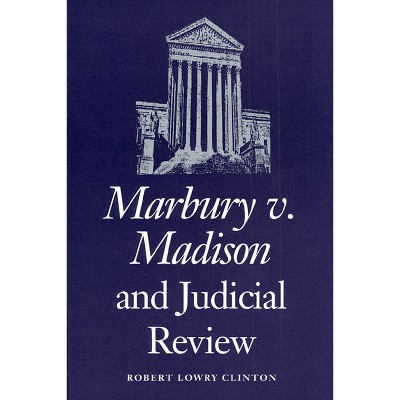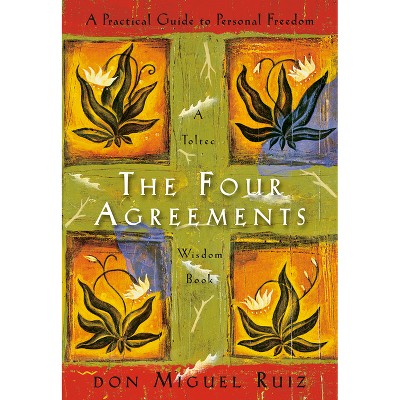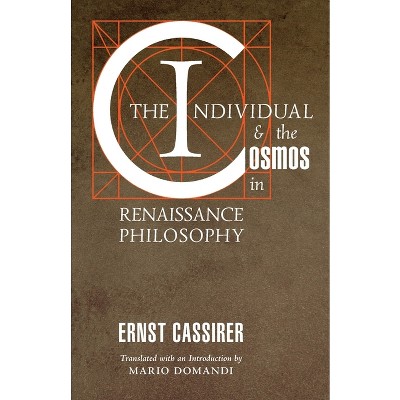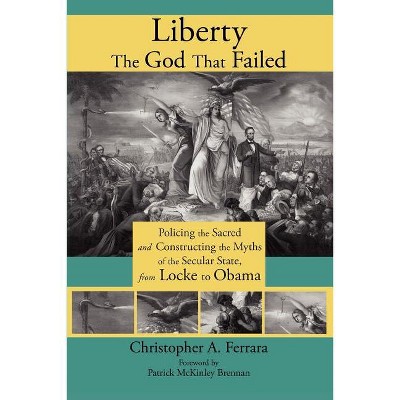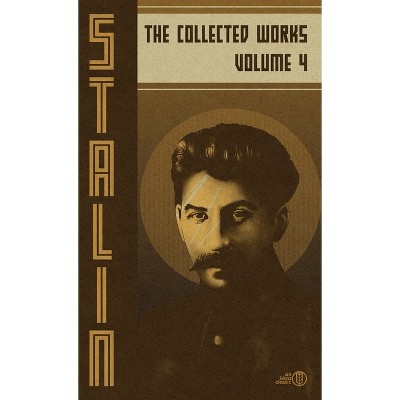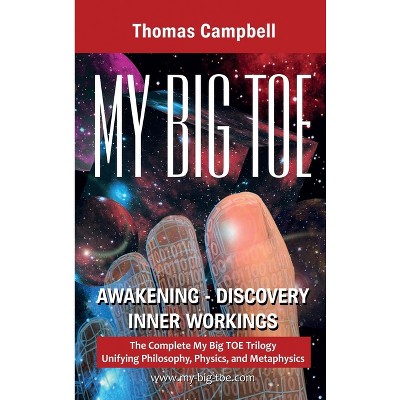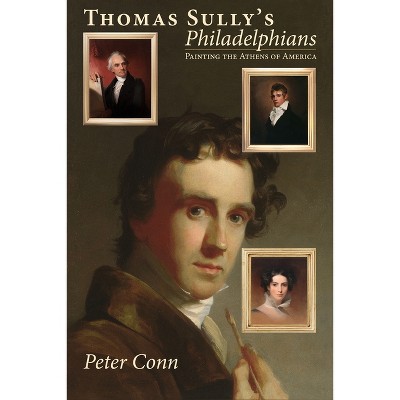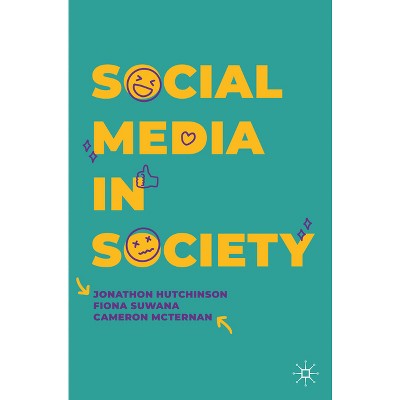Sponsored

The Social Philosophers - by Robert Nisbet (Paperback)
$21.09Save $5.86 (22% off)
In Stock
Eligible for registries and wish lists
Sponsored
About this item
Highlights
- Western ideas of moral authority, freedom, consensus, and personality emerge from humankind's search for community In this provocative, classic, absorbing work of social and intellectual history, Robert Nisbet advances the idea that Western social philosophy arose during the disintegration of the ancient Greek and Roman communities, and has been preoccupied ever since with the problem of community lost and community to be gained.
- About the Author: Robert Nisbet (1913-1996), a former Guggenheim fellow and member of the American Philosophical Society, was the author of many books, among them The Quest for Community: A Study in the Ethics of Order and Freedom; Social Change and History; The Present Age: Progress and Anarchy in Modern America; and The Making of Modern Society.
- 440 Pages
- Philosophy, Social
Description
Book Synopsis
Western ideas of moral authority, freedom, consensus, and personality emerge from humankind's search for community
In this provocative, classic, absorbing work of social and intellectual history, Robert Nisbet advances the idea that Western social philosophy arose during the disintegration of the ancient Greek and Roman communities, and has been preoccupied ever since with the problem of community lost and community to be gained. He further contends that Western ideas of moral authority, freedom, consensus, and personality take on their distinctive character when viewed through the lens of humankind's search for community. Much of the book's originality lies in its organization. Nisbet distinguishes six major types of community in Western life and thought: military, political, religious, revolutionary, ecological, and plural. Each of these is presented as a continuing current in Western history and as a vital context to the central ideas of social philosophy. From Plato and Aristotle down to such modern thinkers as Marx, Tocqueville, Weber, Kropotkin, and Fanon, we are able to see the dominant ideas and perspectives of Western thought as responses to conflicts and crises--above all, to those affecting humankind's quest for community. Written by one of America's best-known historical sociologists, and with a new foreword by Luke Sheahan, The Social Philosophers will be of interest to the student as well as the general reader.Review Quotes
"Perhaps more than any other 20th century American sociologist, the work of Robert Nisbet aimed to link sociological theory with social philosophy. This classic collection of essays offers original interpretations of the varieties of community across human history and the role of community as an avenue for the human search for common meaning and purpose. This reissued collection will be highly relevant to understanding current debates on community among sociological theorists and social philosophers. Luke Sheahan's expert new foreword reminds us of the continued importance of Nisbet's social thought for understanding present-day conflicts and crises that have emerged as a result of ideological polarization and identity politics."--Thomas Cushman, Wellesley College
"Kudos to Luke C. Sheahan and the American Philosophical Society Press for bringing Robert Nisbet's The Social Philosophers to the attention of thoughtful readers once again. This wise, lucid, erudite and capacious book is one of Nisbet's masterworks, an inviting guide to decentralist, pluralistic and anti-totalitarian thought from Aristotle and Althusius to Burke, Tocqueville and Kropotkin. It is a feast for the mind and a joy to read."--Daniel J. Mahoney, Professor Emeritus, Assumption University and author most recently of The Persistence of the Ideological Lie: The Totalitarian Impulse Then and Now (2025).
"The human longing for belonging has preoccupied the West's greatest thinkers, both ancient and modern. The Social Philosophers is Robert Nisbet's classic account of major ideas about the quest for community. Nisbet was arguably the twentieth century's leading historical sociologist. As Luke Sheahan recognizes in his brilliant foreword, Nisbet proved prophetic regarding what can befall people in a modern society when authority, morality, and other pillars of community crack or crumble. This beautiful new edition of The Social Philosophers is timeless yet timely. It should be read not only by academics, analysts, and students, but also by every public official, business executive, nonprofit leader, and anyone else who wishes to plumb the depths in order to discover what it truly takes for solitary individuals to create, maintain, and sustain cohesive communities."--John J. DiIulio, Jr., Frederic Fox Leadership Professor of Politics, Religion, and Civil Society, University of Pennsylvania
"[This] book could be very useful as a companion study in an introductory course in Western Civilization. It provides both majestic comprehensiveness and intelligent focus--a rare combination in the field of intellectual history. And it is exceptionally well-written."--David C. Large "The History Teacher"
"In this too-long neglected work, Robert Nisbet brilliantly surveys the figures and movements that have sought to explore how social bonds can be maintained and revitalized in eras of crisis, fragmentation, and despair. It is a lucid summary of both the hopes and fears inherent in Western thought."--Jonathan B. Imber, Jean Glasscock Professor of Sociology, Wellesley College
"Robert Nisbet has been eminently successful in combining social and intellectual history to produce a work that is a lucid and enlightening introduction to both."--Lewis A. Coser "American Journal of Sociology"
"This text stands as the best single resource work for stimulating interest in the classic themes and issues endemic to the sociological tradition."--Larry L. Hunt "Teaching Sociology"
About the Author
Robert Nisbet (1913-1996), a former Guggenheim fellow and member of the American Philosophical Society, was the author
of many books, among them The Quest for Community: A Study in the Ethics of Order and Freedom; Social Change and History; The Present Age: Progress and Anarchy in Modern America; and The Making of Modern Society.
Dimensions (Overall): 9.21 Inches (H) x 6.14 Inches (W) x .98 Inches (D)
Weight: 1.35 Pounds
Suggested Age: 22 Years and Up
Number of Pages: 440
Genre: Philosophy
Sub-Genre: Social
Publisher: American Philosophical Society Press
Format: Paperback
Author: Robert Nisbet
Language: English
Street Date: September 2, 2025
TCIN: 1000939239
UPC: 9781606180389
Item Number (DPCI): 247-03-6572
Origin: Made in the USA or Imported
If the item details aren’t accurate or complete, we want to know about it.
Shipping details
Estimated ship dimensions: 0.98 inches length x 6.14 inches width x 9.21 inches height
Estimated ship weight: 1.35 pounds
We regret that this item cannot be shipped to PO Boxes.
This item cannot be shipped to the following locations: American Samoa (see also separate entry under AS), Guam (see also separate entry under GU), Northern Mariana Islands, Puerto Rico (see also separate entry under PR), United States Minor Outlying Islands, Virgin Islands, U.S., APO/FPO
Return details
This item can be returned to any Target store or Target.com.
This item must be returned within 90 days of the date it was purchased in store, shipped, delivered by a Shipt shopper, or made ready for pickup.
See the return policy for complete information.

